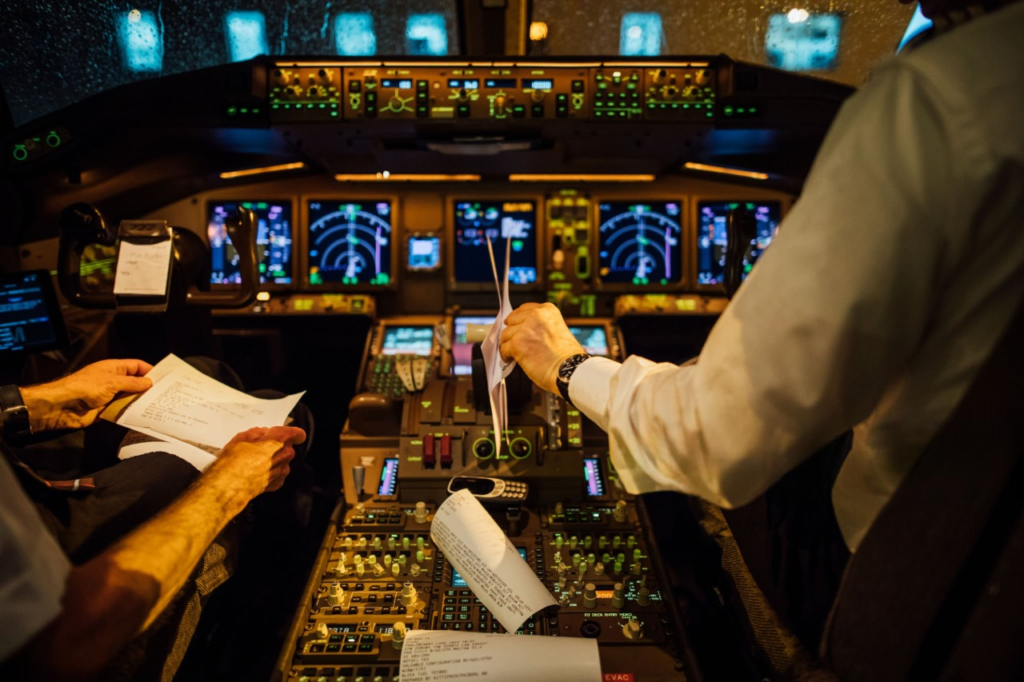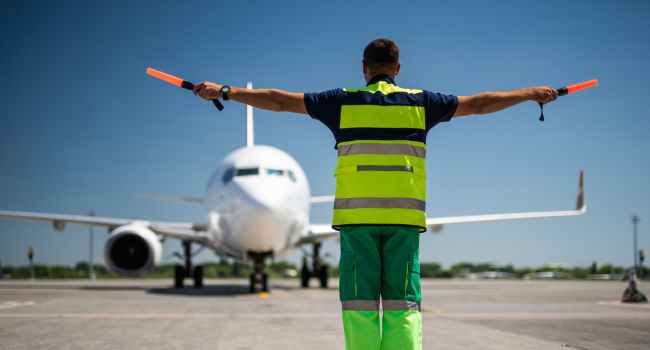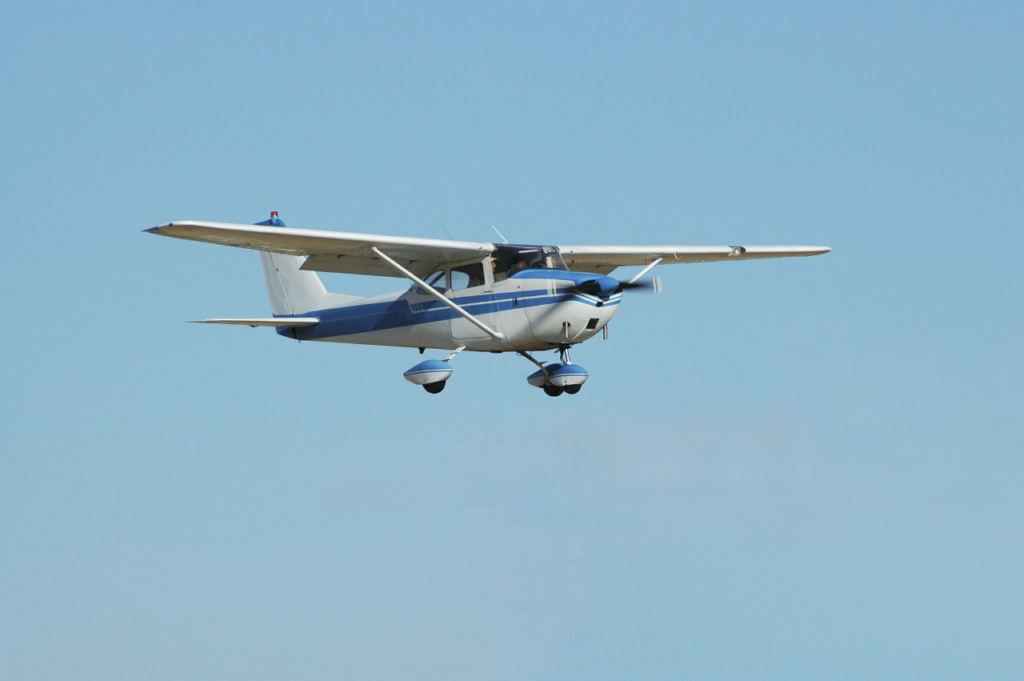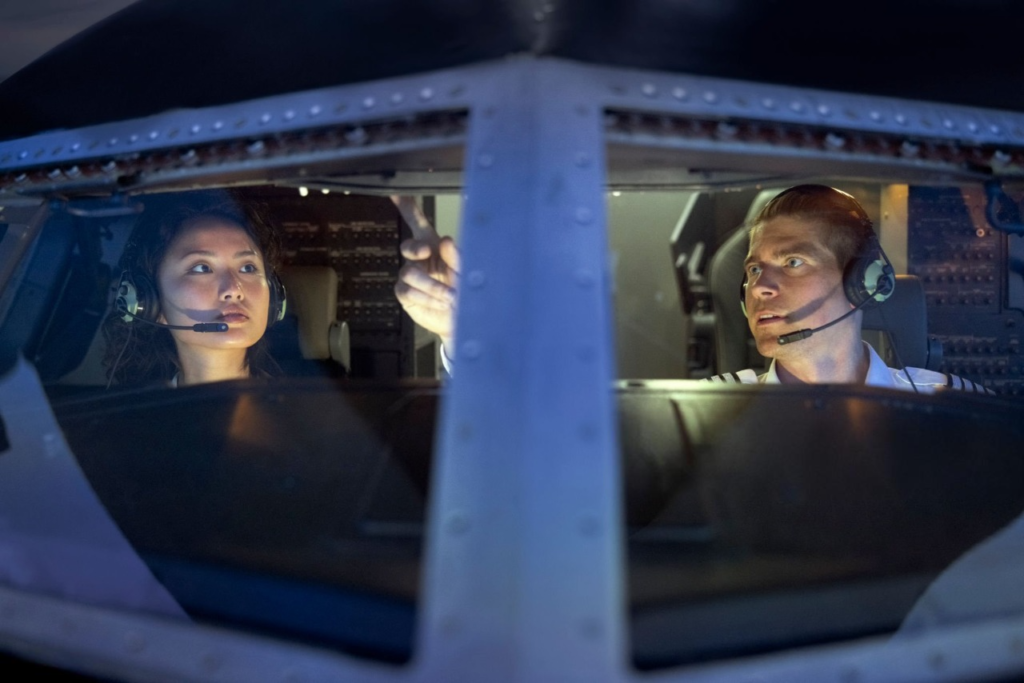PANKH
PILOT PLATFORM
TO BECOME THE WORLD’S BEST PILOT

AIRLINE PILOT FOUNDATION COURSE (APFC)
Preparing for an Airline Pilot Foundation Course (APFC) requires a structured approach, as it lays the groundwork for your aviation career. This course introduces aspiring pilots to the fundamentals of flying, aviation regulations, and the theoretical and practical knowledge necessary for advanced pilot training. Here’s a step-by-step guide to prepare effectively.
UNDERSTAND THE COURSE STRUCTURE
Familiarize yourself with the curriculum of the foundation course. Key topics generally
include:
- Basic aviation concepts (Aerodynamics, Navigation, Meteorology).
- Aircraft systems and operations.
- Radio telephony communication.
- Aviation regulations and safety protocols.
- Introduction to flight simulators and basic flying skills.
BUILD A STRONG KNOWLEDGE BASE

Physics and Mathematics
Brush up on these subjects as they are fundamental to understanding aerodynamics, flight mechanics, and navigation.

English Proficiency
Enhance your communication skills,
as English is the standard
language for aviation worldwide.

Aviation Basics
Start reading beginner-friendly books
or online resources like:
1."The Pilot's Handbook of Aeronautical Knowledge”
by the FAA.
2. Online courses from aviation schools.
ENHANCE PHYSICAL AND MENTAL FITNESS

Medical Fitness
Obtain your Class 1 or Class 2 Medical Certificate from an authorized aviation medical examiner.

Mental Preparation
Develop focus and decision-making skills to handle stressful situations calmly.

Lifestyle
Maintain a healthy diet, exercise regularly, and avoid habits that could impair health or reflexes.
ENHANCE PHYSICAL AND MENTAL FITNESS
- Research career paths, airline expectations, and global aviation standards.
- Learn about the International Civil Aviation Organization (ICAO) and local aviation regulatory bodies.
- Stay updated on the latest trends and advancements in aviation technology.
PRACTICE COMMUNICATION SKILLS
Effective communication is crucial for pilots:
- Learn aviation-specific terminology and standard phraseology used in radio communication.
- Practice speaking clearly and concisely to simulate real-world scenarios.
GET HANDS-ON EXPERIENCE
- Enroll in trial flights or introductory flying lessons offered by local flight schools to gain practical exposure.
- Participate in flight simulator training to get a feel for cockpit controls and basic flying maneuvers.
PREPARE FOR ENTRANCE REQUIREMENTS
Some institutions may require entrance exams or interviews. Prepare for:
- Basic knowledge assessments in science and math.
- Aptitude tests for spatial awareness, multitasking, and problem-solving.
- Personal interviews to assess your passion and commitment.
DEVELOP FINANCIAL PLANNING
- Assess the course fees and plan your finances accordingly.
- Explore scholarships, loans, or sponsorship opportunities offered by airlines or training institutions.
STAY MOTIVATED AND COMMITTED
The path to becoming an airline pilot requires discipline, focus, and perseverance. Stay motivated by setting clear career goals and visualizing your future as a pilot.

IGRUA ENTRANCE
Indira Gandhi Institute of Aeronautics (IGRUA) is one of India’s premier pilot training academies, offering a pathway to become a commercial pilot. Located in Amethi, Uttar Pradesh, IGRUA conducts an entrance examination to select candidates for its flagship Commercial Pilot License (CPL) course, which includes ground training and flying experience. Here’s a detailed overview,
COURSE OFFERED
Commercial Pilot License (CPL) training with Multi-Engine Endorsement and
Instrument Rating.
BUILD A STRONG KNOWLEDGE BASE
Age
Minimum 17 years at the time of admission.
Education
Passed 10+2 with Physics, Mathematics, and English as subjects.
Minimum aggregate of 50% marks (45% for SC/ST/OBC candidates) in Physics
and Mathematics.
Medical Fitness
Class 1 Medical Certificate from DGCA-approved Airforce doctors.
EXAM FORMAT
Online Test
Covers General English, Mathematics, Physics, Reasoning, and General Awareness.
Interview
Shortlisted candidates are called for an interview to assess their communication skills and personality.
Pilot Aptitude Test (PAT)
Measures hand-eye coordination, multitasking abilities, and psychometric fitness.
APPLICATION PROCESS
- Apply online through the IGRUA official website.
- Pay the application fee (varies yearly, check the official notification).
TRAINING HIGHLIGHTS
- 200 hours of flying, including simulator training.
- State-of-the-art facilities and experienced instructors.
- Graduates are eligible to apply for airline-specific type-rating and roles.
SELECTION CRITERIA
- Final selection is based on performance in the written test, interview, and PAT.
IMPORTANT DATES
- Application window, exam date, and interview schedule are announced on IGRUA’s website annually.
FEE STRUCTURE
- The CPL training fee is competitive but substantial. Candidates may explore scholarships, loans, or sponsorship options.
JOB OPPORTUNITIES
- Successful graduates can pursue careers with domestic and international airlines, charter services, or corporate aviation.

RADIO TELEPHONY RESTRICTED AERONAUTICAL (RTR -A)
The RTR (Radio Telephony Restricted) Aeronautical Examination is a certification process designed for individuals wishing to operate radio equipment within the aeronautical domain. This qualification is particularly relevant for pilots, air traffic controllers, and ground crew involved in air operations, as it ensures the operator is proficient in the safe and correct use of radio communication for aviation purposes.
Key Aspects of the RTR Aeronautical Examination – Purpose ; The RTR Aeronautical exam certifies that individuals have the necessary knowledge and skills to operate aviation radios, ensuring effective communication between aircraft and air traffic control, or between aircraft in-flight.
Target Audience – Primarily aimed at private pilots, aviation ground personnel, and others involved in aviation communication but who are not required to hold a full commercial radio operator’s certificate.
EXAMINATION CONTENT
Radio Theory: Basics of radio frequency, modulation, Aviation Communication, and signal propagation.
Procedures: Focus on standard aviation phraseology, ensuring clear and concise communication.
Distress and Emergency Procedures: Knowledge of how to communicate in case of emergency or distress situations, using appropriate distress signals and procedures.
Regulations and Protocols: Understanding of ICAO and national regulations governing radio communications in aviation.
Language and Phraseology: Candidates must demonstrate the ability to use standard aviation phraseology, which ensures clarity in communication between pilots and air traffic controllers.
ELIGIBILITY
The RTR Aeronautical exam is usually open to individuals who have reached the minimum age (often 18 years old) and possess basic English language proficiency. While it’s primarily aimed at non-commercial operators, candidates must meet certain prerequisites in terms of basic aviation knowledge or training.
CERTIFICATION
Upon passing the exam, individuals receive the Radio Telephony Restricted Aeronautical Certificate, which authorizes them to operate radios within the aeronautical environment under specific conditions. The certificate is essential for any aviation-related communication in controlled airspace.
VALIDITY AND RENEWAL
The RTR Aeronautical certificate is typically valid for life, although some jurisdictions may require periodic revalidation or refresher courses to ensure ongoing proficiency in radio communication.
MPORTANCE OF THE RTR AERONAUTICAL EXAM
Safety: Proper radio communication in aviation is crucial for ensuring safety in air operations, particularly in emergency situations or during critical stages of flight.
Regulatory Compliance: Obtaining the RTR Aeronautical certificate ensures that operators comply with international and national aviation communication regulations.
Operational Efficiency: Clear and accurate communication helps avoid misunderstandings, ensuring smoother and more efficient air traffic management.
The RTR Aeronautical Examination is an important step for individuals in aviation, providing the foundation for responsible radio operation and contributing to the overall safety and effectiveness of air travel.


